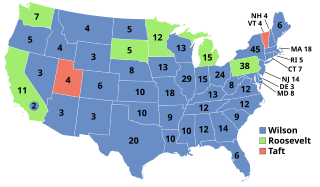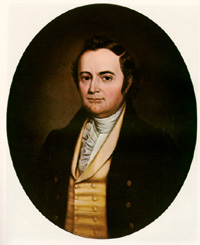
The Australian Labor Party is a major centre-left political party in Australia. The party has been in opposition at the federal level since the 2013 election. Bill Shorten has been the party's federal parliamentary leader since 13 October 2013. The party is a federal party with branches in each state and territory. Labor is in government in the states of Victoria, Queensland, Western Australia, and in both the Australian Capital Territory and Northern Territory. The party competes against the Liberal/National Coalition for political office at the federal and state levels. It is the oldest political party in Australia.

The 2001 United Kingdom general election was held on Thursday 7 June 2001, four years after the previous election on 1 May 1997, to elect 659 members to the British House of Commons. Under the leadership of Tony Blair, the governing Labour Party was re-elected to serve a second term in government with another landslide victory, returning 413 of the 418 seats won by the party in the previous general election, a net loss of 5 seats, though with significantly lower turnout than before—59.4%, compared to 71.3% in the previous election. Tony Blair went on to become the first Labour Prime Minister to serve a consecutive full term in office. It was dubbed "the quiet landslide" by the media.

An election is a formal group decision-making process by which a population chooses an individual to hold public office. Elections have been the usual mechanism by which modern representative democracy has operated since the 17th century. Elections may fill offices in the legislature, sometimes in the executive and judiciary, and for regional and local government. This process is also used in many other private and business organizations, from clubs to voluntary associations and corporations.

The 1860 United States presidential election was the nineteenth quadrennial presidential election to select the President and Vice President of the United States. The election was held on Tuesday, November 6, 1860. In a four-way contest, the Republican Party ticket of Abraham Lincoln and Hannibal Hamlin emerged triumphant. The election of Lincoln served as the primary catalyst of the American Civil War.

The United States presidential election of 1912 was the 32nd quadrennial presidential election, held on Tuesday, November 5, 1912. Democratic Governor Woodrow Wilson of New Jersey unseated incumbent Republican President William Howard Taft and defeated former President Theodore Roosevelt, who ran as the Progressive Party nominee. Roosevelt remains the only third party presidential candidate in U.S. history to finish better than third in the popular or electoral vote.

The United States presidential election of 1936 was the thirty-eighth quadrennial presidential election, held on Tuesday, November 3, 1936. In the midst of the Great Depression, incumbent Democratic President Franklin D. Roosevelt defeated Republican Governor Alf Landon of Kansas. Roosevelt won the highest share of the popular and electoral vote since the largely uncontested 1820 election. The sweeping victory consolidated the New Deal Coalition in control of the Fifth Party System.

The 1972 United States presidential election was the 47th quadrennial presidential election. It was held on Tuesday, November 7, 1972. Incumbent Republican President Richard Nixon defeated Democratic Senator George McGovern of South Dakota.

The United States Electoral College is a body of electors established by the United States Constitution, constituted every four years for the sole purpose of electing the president and vice president of the United States. The Electoral College consists of 538 electors, and an absolute majority of 270 electoral votes is required to win an election. Pursuant to Article II, Section 1, Clause 2, the legislature of each state determines the manner by which its electors are chosen. Each state's number of electors is equal to the combined total of the state's membership in the Senate and House of Representatives; currently there are 100 senators and 435 representatives. Additionally, the Twenty-third Amendment provides that the District of Columbia (D.C.) is entitled to a number of electors no greater than that of the least populous state.

The Bharatiya Janata Party is one of the two major political parties in India, along with the Indian National Congress. As of 2018, it is the country's largest political party in terms of representation in the national parliament and state assemblies, and it is the world's largest party in terms of primary membership. BJP is a right-wing party, and its policy has historically reflected Hindu nationalist positions. It has close ideological and organisational links to the Rashtriya Swayamsevak Sangh (RSS).
A primary election is the process by which voters, either the general public or members of a political party, can indicate their preference for a candidate in an upcoming general election or by-election, thus narrowing the field of candidates.
India is a federation with a parliamentary system governed under the Constitution of India, which defines the power distribution between the union, or central, government and the states.

The 2005 United Kingdom general election was held on Thursday 5 May 2005, to elect 646 members to the House of Commons. The Labour Party led by Tony Blair won its third consecutive victory, with Blair becoming the only Labour leader beside Harold Wilson to form three majority governments. However, its majority now stood at 66 seats compared to the 160-seat majority it had previously held. As of 2019, it remains the last general election victory for the Labour Party.

Federal elections were held in Germany on 5 March 1933, after the Nazi seizure of power on 30 January and just six days after the Reichstag fire. Nazi stormtroopers had unleashed a widespread campaign of violence against the Communist Party (KPD), left-wingers, trade unionists, the Social Democratic Party of Germany, and the Centre Party. They were the last multi-party elections in a unified Germany until 1990.
An independent or nonpartisan politician is an individual politician not affiliated with any political party. There are numerous reasons why someone may stand for office as an independent.

Elections to the United States House of Representatives for the 19th Congress coincided with the contentious presidential election of that year. While the bulk of states held their elections in 1824, six states scheduled their general elections at various times during 1825.

The 2016 United States presidential election was the 58th quadrennial American presidential election, held on Tuesday, November 8, 2016. The Republican ticket of businessman Donald Trump and Indiana Governor Mike Pence defeated the Democratic ticket of former Secretary of State Hillary Clinton and U.S. Senator from Virginia Tim Kaine, despite losing the popular vote. Trump took office as the 45th President, and Pence as the 48th Vice President, on January 20, 2017.

The election of president and vice president of the United States is an indirect election in which citizens of the United States who are registered to vote in one of the 50 U.S. states or in Washington, D.C. cast ballots not directly for those offices, but instead for members of the U.S. Electoral College, known as electors. These electors then in turn cast direct votes, known as electoral votes, for president, and for vice president. The candidate who receives an absolute majority of electoral votes is then elected to that office. If no candidate receives an absolute majority of the votes for President, the House of Representatives chooses the winner; if no one receives an absolute majority of the votes for Vice President, then the Senate chooses the winner.

The Tamil Nadu Legislative Assembly alone has powers to legislate laws covering state subjects in the Indian state of Tamil Nadu. It has a strength of 235 members of whom 234 are democratically elected using the First-past-the-post system. The remaining member is nominated as a representative of the Anglo-Indian community. The presiding officer of the Assembly is called the Speaker. The term of the Assembly is five years unless it is dissolved earlier.

There have been five United States presidential elections in which the winner lost the popular vote including the 1824 election, which was the first U.S. presidential election where the popular vote was recorded. Losing the popular vote means securing less of the national popular vote than the person who received either a majority or a plurality of the vote.

The Election Commission of India is an autonomous constitutional authority responsible for administering election processes in India. The body administers elections to the Lok Sabha and Rajya Sabha and state Legislative Assemblies and Legislative Council in India, and the offices of the President and Vice President in the country. The Election Commission operates under the authority of Constitution per Article 324, and subsequently enacted Representation of the People Act. The commission has the powers under the Constitution, to act in an appropriate manner when the enacted laws make insufficient provisions to deal with a given situation in the conduct of an election. Being a constitutional authority, Election Commission is amongst the few institutions which function with both autonomy and freedom, along with the country’s higher judiciary, the Union Public Service Commission and the Comptroller and Auditor General of India.



















